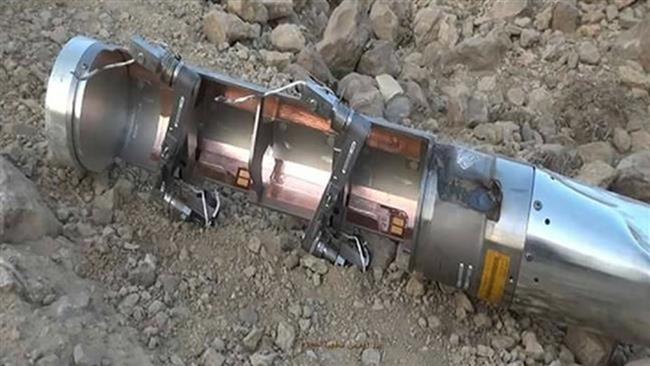
Saudi Arabia Continues Using ’Banned Cluster Bombs’ on Yemen
Local Editor
Saudi Arabia has once again used banned cluster bombs in its deadly military aggression against war-ravaged Yemen.
Yemen’s al-Masirah TV reported on Friday that Saudi warplanes attacked residential areas in Baqim district in Yemen’s northwestern Sa’ada province with cluster munitions, which are banned under the international law.
There are no immediate reports on the number of casualties or the extent of damage.
Earlier in the day, Saudi-led air raids killed at least 34 civilians, mostly women and children, and injured scores of others in the border province.
Saudi-led warplanes also launched 20 airstrikes on Yemen’s capital, Sana’a, where 19 people were killed and at least 100 others were injured. The Saudis also carried out eight more air raids on a prison in the province of Bayda.
In the Sirwah district of Yemen’s central province of Ma’rib, four people lost their lives and several others sustained injuries as Saudi jets pounded a market in the area.
In retaliation for the Saudi-led attacks on the country, Yemen’s forces launched dozens of rockets against Saudi positions, killing three soldiers and injuring 28 others in Saudi Arabia’s southwestern border province of Jizan. The Saudi civil defense agency confirmed the casualties.
Yemen’s Ansarullah fighters and allied army units have pledged to continue their retaliatory attacks until Saudi Arabia stops its aggression on the impoverished nation.
On March 26, a Saudi-led coalition backed by the United States began a military aggression on Yemen by launching airstrikes against the country. The airstrikes have not been authorized by the United Nations [UN].
The US-led Saudi aggression began in an attempt to restore power to Hadi, a close ally of Saudi Arabia, and to undermine the Houthi Ansarullah movement which is currently responding to the attacks on the country.
The ’civilian’ death toll in Yemen has risen to at least 1,916, with another 4,186 civilians wounded since the escalation of the conflict in March, the Office of the High Commissioner for Human Rights [OHCHR] reported recently last month.
